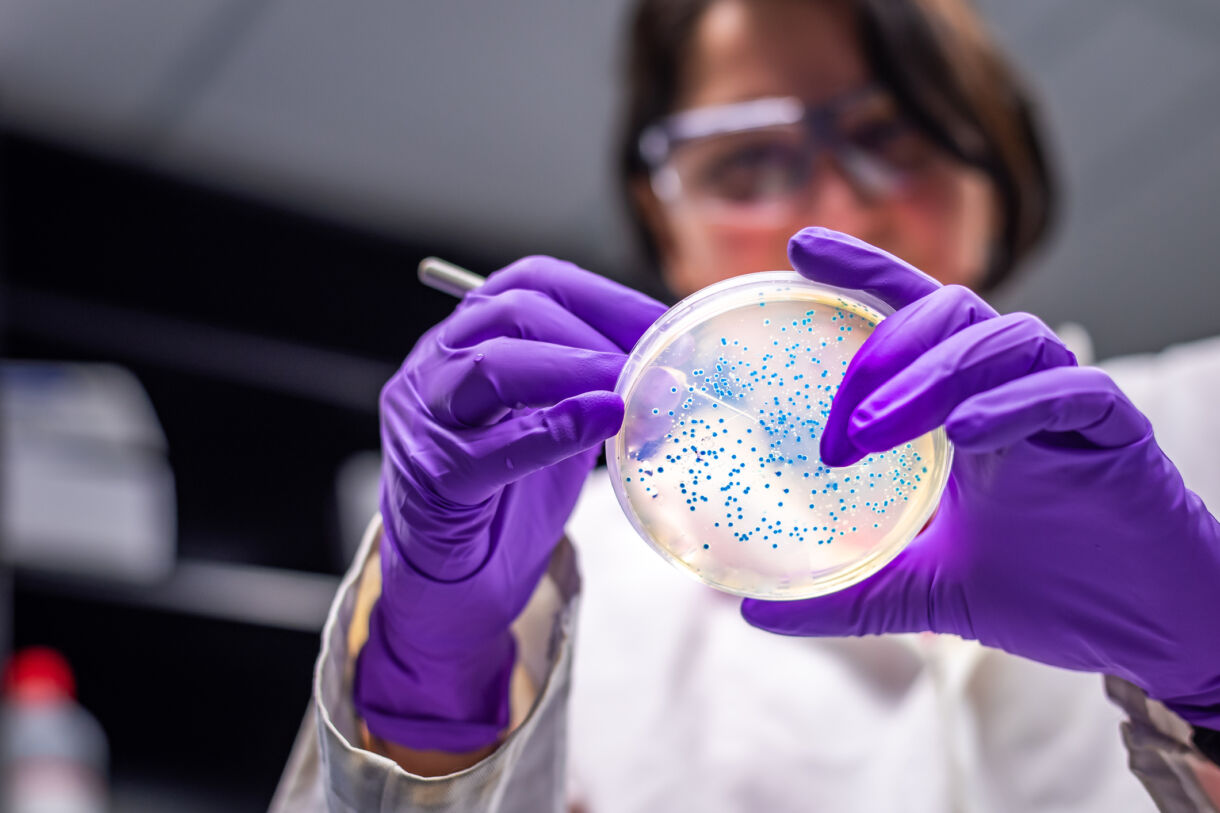
Robert's story
Andrea Colvile was just 40 years old when she tragically passed away from autoimmune hepatitis, a rare and unpredictable liver disease. For her husband, Robert, life without Andrea has been filled with profound grief and loss, but also a determination to ensure her legacy helps others affected by this little-known condition.
Every day with her was better than any day without her.

“The love of my life.”
“Andrea was the love of my life. We got together quite late on - in our thirties, and every day with her was better than any day without her.
Shortly after the birth of our second child, Andrea was feeling lethargic and tired. We didn’t think much of it at first because we had just had a second child, and having already had one before, we knew it could be pretty tough.
But when our second child was about four or five months old, Andrea got jaundice. We went to hospital and someone took a look at her and said there was something weird about her skin tone and eye colour. They thought there was something else going on.
They discovered she had something wrong with her liver, and over the months that followed, it turned out to be autoimmune hepatitis.”
What is autoimmune hepatitis?
Autoimmune hepatitis is a rare cause of long-term hepatitis in which the immune system attacks and damages the liver. Eventually, the liver can become so damaged that it stops working properly.
Existing treatments aim to reduce inflammation by suppressing the immune system, but this can also reduce the immune system’s ability to fight infection. It is not currently clear what causes the condition, who is most vulnerable, or whether anything can be done to prevent it.
There are thought to be around 10,000 people living with autoimmune hepatitis in the UK, and although both men and women can develop the condition, it is much more common in women.

Support research today
Donate to support more life-changing medical research and give hope to those grappling with underfunded and overlooked conditions.
Support us“Everything that could go wrong did.”
“For most people, autoimmune hepatitis isn’t fatal, but everything that could go wrong did go wrong. She didn’t respond well to the steroids, and when the inflammation in her liver subsided, she had much more scarring than expected, making it harder for her to recover.
Because the steroids weakened her immune system, she caught an infection which she couldn’t fight off. And because of the infection, she couldn’t have a liver transplant.
They had to choose between treating the liver disease or treating the infection, and whatever they did for one made the other worse.
In the end, they told us it wasn’t working, and she went in and out of intensive care.
In the end, we had to let her go.”
Andrea passed away on Sunday 7 July 2019, surrounded by her family.


The research Robert was able to support
Thanks to donations from Robert and his supporters, ground-breaking new research led by Dr Zania Stamataki is taking place.
Find out moreHer spirit shone through.
Bryony Gordon, a journalist and author, was a close friend of Andrea and Robert. After Andrea's passing, Bryony reflected on seeing her friend’s health decline the way it had:
“I remember visiting her in hospital – she was jaundiced, swollen and almost unrecognisable from the gorgeous, vibrant woman I knew. But when she spoke, her spirit shone through.”

“One of things I’ve come to realise is how much medical research matters.”
In July 2019, Robert created a fundraising appeal for the Medical Research Foundation in Andrea’s memory. Within hours, it had raised £10,000, and it has since exceeded £130,000 for research into autoimmune hepatitis.
“I was amazed. When we set up the fundraising appeal, I posted it on Twitter, and the donations kept going up. I’ve realised just how important medical research is, and how much more we can do to raise public awareness.”
Thanks to the money raised through Robert’s campaign, the Foundation were able to support Dr Zania Stamataki who is exploring new ways to understand autoimmune hepatitis. Dr Stamataki’s research focuses on how immune cells interact with liver cells, in the hope of developing more effective and targeted treatments.
Hear Robert Colvile talk about his story and his remarkable charity appeal, which has raised over £130,000 for ground-breaking new research into autoimmune hepatitis:
Inspired to take action by Robert's story?
Donations in memory are a wonderful way to remember someone special. Discover more about how to raise money for life-changing research.
Donate in memory


